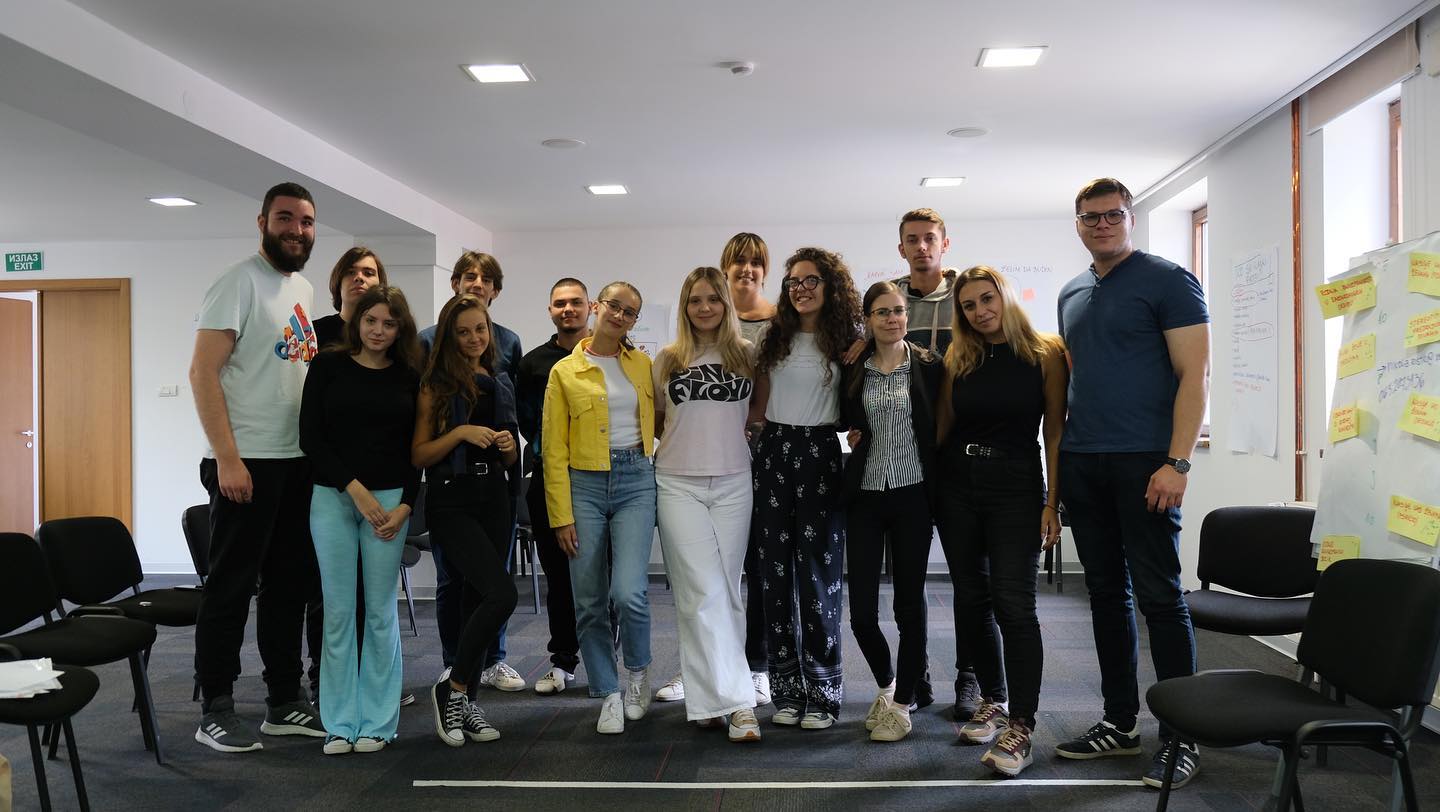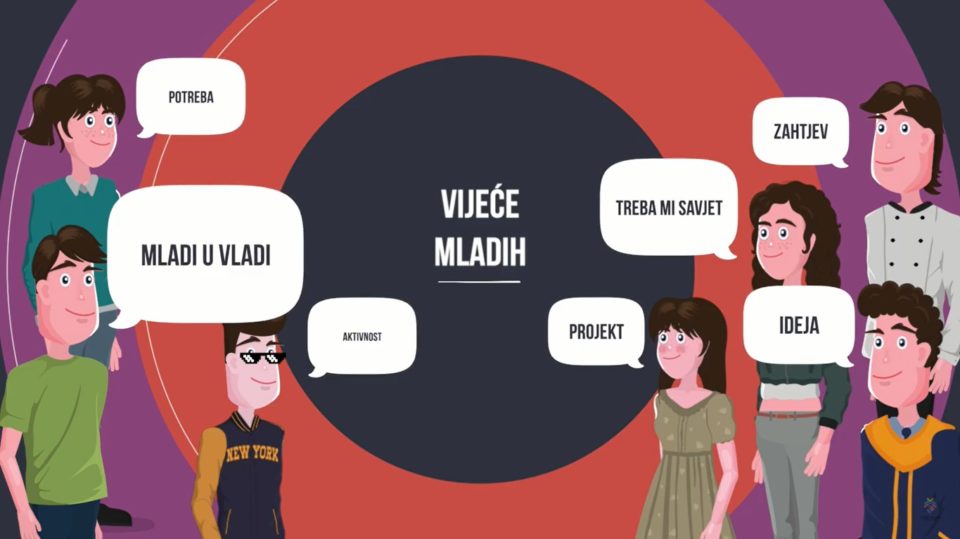
Young people in the Federation of Bosnia and Herzegovina (FBiH) cite unemployment, corruption, weak support mechanisms, low living standards, and poor education as the biggest problems they face. This is according to the survey “What young people say” [Šta kažu mladi] conducted by the FBiH Youth Council in 2020. The Council, which acts as an …
Young people in the Federation of Bosnia and Herzegovina (FBiH) cite unemployment, corruption, weak support mechanisms, low living standards, and poor education as the biggest problems they face. This is according to the survey “What young people say” [Šta kažu mladi] conducted by the FBiH Youth Council in 2020. The Council, which acts as an umbrella youth organization in the FBiH, says that one of the ways to increase youth employment is to implement the Youth Guarantee, which is applied in the countries of the European Union.
The Youth Council was established in FBiH eight years ago. Its work includes more than 500 young people from 71 communities who come from more than 100 youth associations. Its projects and activities vary, but they all have a common goal – bettering the position of young people in Bosnia and Herzegovina.

Irma Rešidović, a project assistant at the FBiH Youth Council, said that the establishment of the Youth Council at the local, cantonal and Federation levels was a major step towards improving the position of young people and youth organizing because they are recognized by the Law. As such, councils act as youth umbrella organizations at these levels, and in addition, every day they listen to the needs of the young people who are part of their structures.
The Council faced difficulties from the beginning but has succeeded thanks to the enormous support they receive throughout the Western Balkans.
“The greatest support came from the regional umbrella bodies and youth organizations throughout the Western Balkans and the positive practices they created. After working with them for a long time, we were encouraged to act to establish a dialogue between young people and representatives of government institutions in the field of employment,” explained Rešidović.
The Law on Youth of the Federation of Bosnia and Herzegovina clearly defines youth councils as legal and legitimate youth representative bodies. Their task is primarily to involve young people in the social life of the community and to encourage policies that benefit young people.
“According to the latest Analysis of the implementation of the Law from 2020, carried out by the FBiH Youth Council, we must point out that the Law is not being implemented to the extent that is necessary for young people and would improve their daily life in this country,” explained Rešidović. She added, however, that it is not all so bleak, because there are communities that are implementing the Law properly.
The cities of Tuzla, Brčko, and Ilijaš, as well as the Centar Municipality in Sarajevo, are leading the way for positive change and successfully implementing the provisions of the Law on Youth.
Through various events and activities, Rešidović pointed out that young people identified a number of problems related to unemployment, and the conclusion was that the solution lies in working on the educational sector, particularly, adapting it to the labor market. It is also necessary to carry out reforms in the employment sector so that enough new job opportunities are being created.
Thus, the way to increase in youth employment is through educational reforms, strengthening partnerships between institutions, informal education, and the adoption of policies and legislation that will guarantee young people a job after completing their education. Rešidović explained that youth employment can be improved by implementing new mechanisms such as the Youth Guarantee, a program that guarantees a job, training, internship, or continuation of studies to young people within four months of completing a certain level of education. In addition, she emphasized the importance of cooperation between civil society, institutions, and the private sector.
The guarantee for young people in European countries was launched by the European Commission in 2013, and in 2020, it became a political obligation for all members of the European Union. The Youth Guarantee offers all people under the age of 30 quality employment, continued education, or internship work within four months after completing their education or losing their job.

Related to the trends in youth unemployment in BiH, there is also the problem of young people leaving the country on mass to seek economic opportunities abroad, which is becoming more and more pronounced every year. According to representatives of youth organizations, part of the solution lies in more intensive involvement of local communities and a strategic approach to the creation and implementation of youth policies.
Through various projects, the FBiH Council strives to educate young people from all over the country about their rights, but also to create a safe space where young people can freely and openly discuss current problems. Rešidović emphasizes that we must reject the notion that young people are passive and do not want change, because everyone wants positive change in their spheres of interest.
Civil society organizations and the media are thus crucial for uplifting hard-working, successful, independent young people who are examples of how success can be achieved in a society like BiH.
The BiH government is failing to offer young people systemic and long-term solutions that would solve the problems they face. It is high time that government institutions show that the youth of this country are important, and not just a political bargaining chip to get more votes in election years.
“The role of government institutions is something young people are vocal about. If they implement the laws, strategies, and policies that they first passed and adopted, the burden will be lifted from young people’s backs of having to do everything themselves, of carrying the whole world rests on their shoulders. Make at least one part of a quality world for us, and we’ll do the rest,” added Rešidović.
This article is part of a series of texts within the #EmployMe project of the Post-Conflict Research Center and Balkan Diskurs. The series aims to raise awareness about the problems that young people face in the field of education and employment in BiH and highlight some good practices in battling these obstacles. This series is part of the “Youth Retention Program in BiH – Opšta Mobilizacija,” implemented by the Nešto Više Association and PRONI Center for Youth Development, with support from the Delegation of the European Union to BiH.






